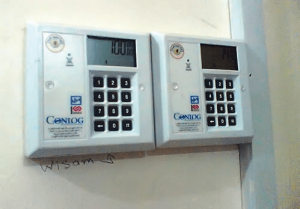
Mkpoikana Udoma
22 January 2019, Sweetcrude, Port Harcourt — Electricity distribution companies in the country under the aegis of the Association of Nigerian Electricity Distributors, ANED, have raised alarm that 47 percent of prepaid meters in the country are by-passed by customers at the first four weeks of installation.
Executive Director, Research and Advocacy, ANED, Mr. Sunday Oduntan, disclosed this while speaking exclusively to our correspondent in Port Harcourt, on challenges faced by Discos in the country.
Oduntan explained that the body has carried out a research on energy theft in the country and the result was disheartening.
He also stated that electricity users and customers will continue to buy electrical infrastructures like transformers and poles, unless liquidity crisis in the sector is taken care of.
“One major challenge is the low level of power available for Nigerians, even the little that is available is stolen by consumers. There are so many thieves in the system
“We have done a research that shows that 47percent of installed prepaid metres are by-passed within the first four weeks of installation by the customers. Which means we have so many energy thieves in our country
“The major problem is liquidity, cost recovery. Once the product is sold below the cost price, there is no way it can be efficient. Ordinary people and communities will continue to buy poles, transformers etc because the people (Discos) who are supposed to provide these things do not have the money.
“So the greatest challenge is liquidity crisis. There is huge shortfall in the system, unless that is taken care of, we will continue to go about the same thing.”
He, however, admitted that electricity distribution companies in the country were not as efficient as they should be, while appealing to the federal government to expand the national grid for efficiency.
“We (Discos) too are not as efficient as we should be, but like I said, when you cannot recover your cost, you cannot be efficient. Efficiency is also linked to the issue of cost.”



